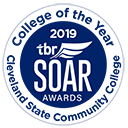Music Composers and Arrangers
Music Composers and Arrangers
27-2041.04
Median wages
$27,420
Write and transcribe musical scores.
- Apply elements of music theory to create musical and tonal structures, including harmonies and melodies.

- Use computers and synthesizers to compose, orchestrate, and arrange music.

- Determine voices, instruments, harmonic structures, rhythms, tempos, and tone balances required to achieve the effects desired in a musical composition.

- Experiment with different sounds, and types and pieces of music, using synthesizers and computers as necessary to test and evaluate ideas.

- Write changes directly into compositions, or use computer software to make changes.

- Transcribe ideas for musical compositions into musical notation, using instruments, pen and paper, or computers.

- Guide musicians during rehearsals, performances, or recording sessions.

- Score compositions so that they are consistent with instrumental and vocal capabilities such as ranges and keys, using knowledge of music theory.

- Write musical scores for orchestras, bands, choral groups, or individual instrumentalists or vocalists, using knowledge of music theory and of instrumental and vocal capabilities.

- Confer with producers and directors to define the nature and placement of film or television music.

- Fill in details of orchestral sketches, such as adding vocal parts to scores.

- Explore and develop musical ideas based on sources such as imagination or sounds in the environment.

- Write music for commercial mediums, including advertising jingles or film soundtracks.

- Transpose music from one voice or instrument to another to accommodate particular musicians.

- Rewrite original musical scores in different musical styles by changing rhythms, harmonies, or tempos.

- Study original pieces of music to become familiar with them prior to making any changes.

- Arrange music composed by others, changing the music to achieve desired effects.

- Accept commissions to create music for special occasions.

- Study films or scripts to determine how musical scores can be used to create desired effects or moods.

- Create original musical forms, or write within circumscribed musical forms such as sonatas, symphonies, or operas.

- Collaborate with other colleagues, such as copyists, to complete final scores.

- Copy parts from scores for individual performers.
Music or sound editing software — Audacity; Avid Technology Sibelius; XT Software energyXT; ZynAddSubFX
- Reading Comprehension — Understanding written sentences and paragraphs in work related documents.

- Writing — Communicating effectively in writing as appropriate for the needs of the audience.

- Active Listening — Giving full attention to what other people are saying, taking time to understand the points being made, asking questions as appropriate, and not interrupting at inappropriate times.

- Critical Thinking — Using logic and reasoning to identify the strengths and weaknesses of alternative solutions, conclusions or approaches to problems.

- Coordination — Adjusting actions in relation to others' actions.

- Judgment and Decision Making — Considering the relative costs and benefits of potential actions to choose the most appropriate one.

- Speaking — Talking to others to convey information effectively.

- Time Management — Managing one's own time and the time of others.

- Complex Problem Solving — Identifying complex problems and reviewing related information to develop and evaluate options and implement solutions.

- Monitoring — Monitoring/Assessing performance of yourself, other individuals, or organizations to make improvements or take corrective action.

- Active Learning — Understanding the implications of new information for both current and future problem-solving and decision-making.










